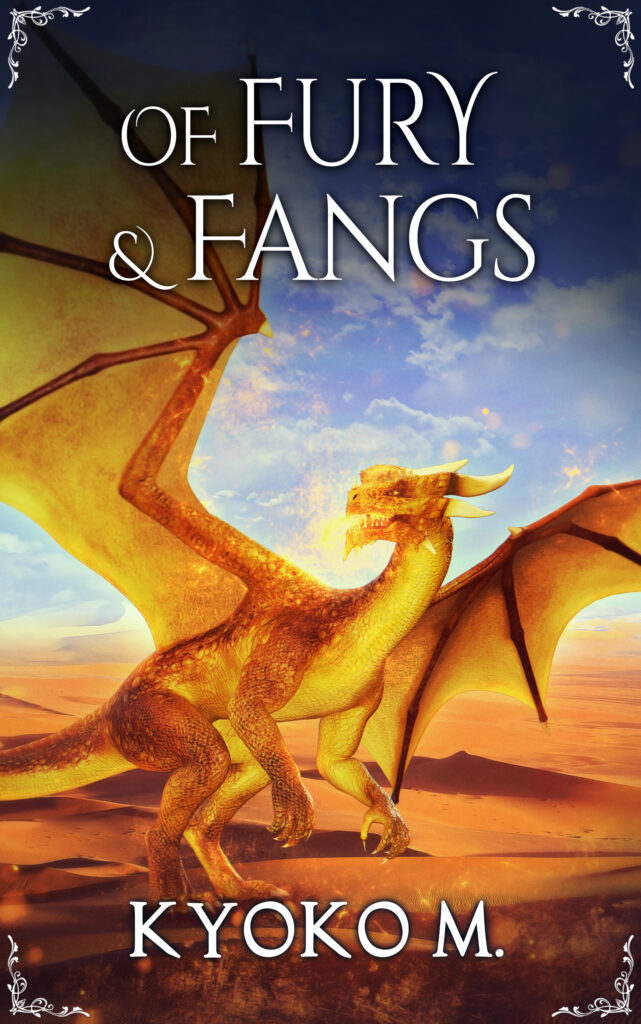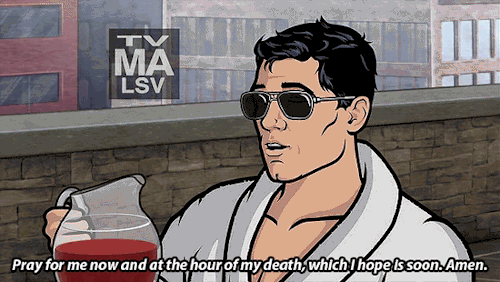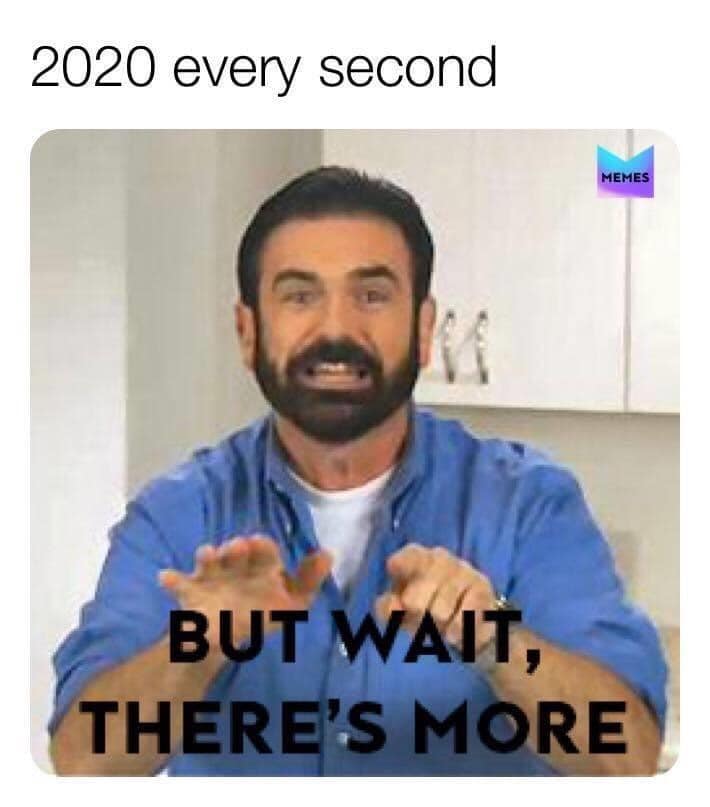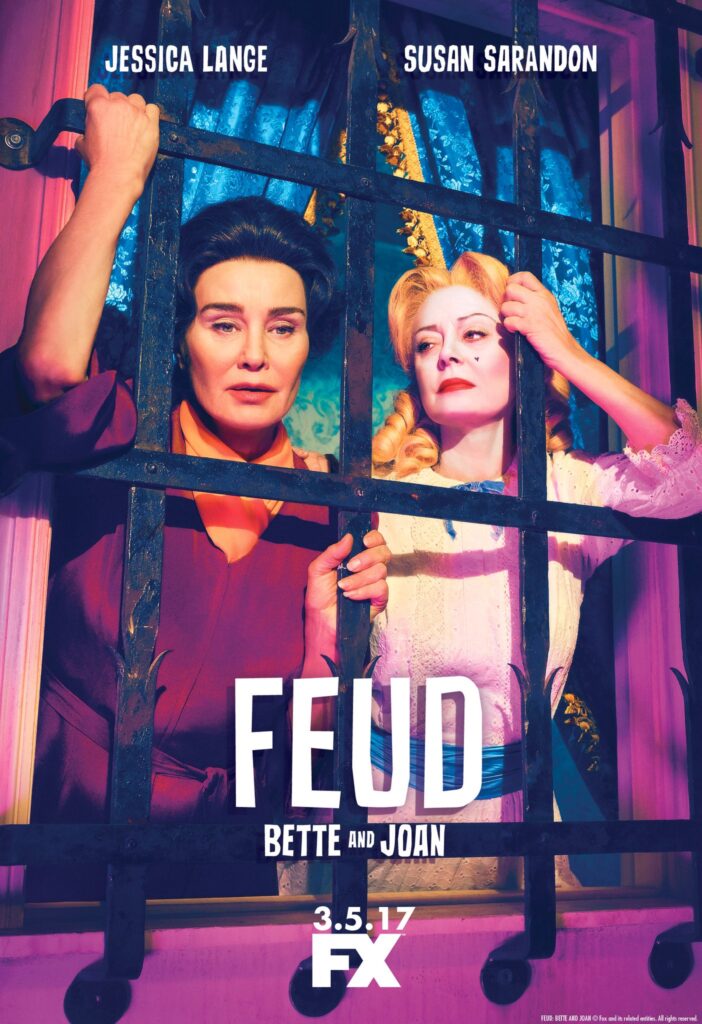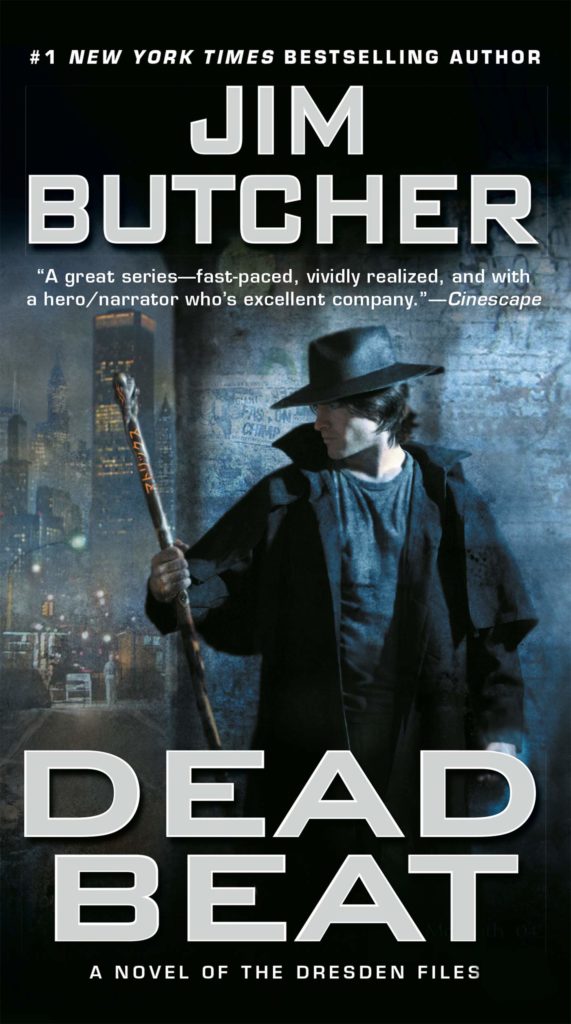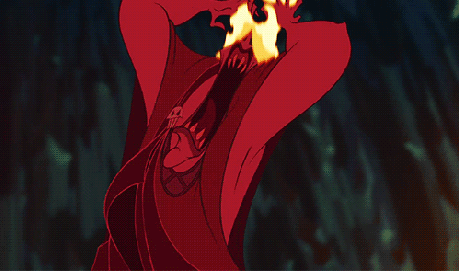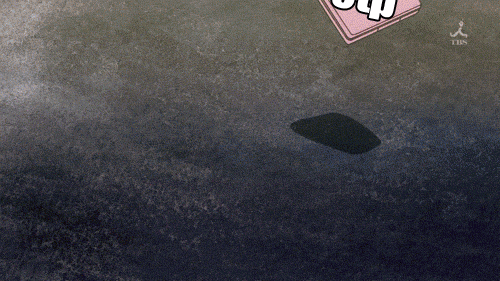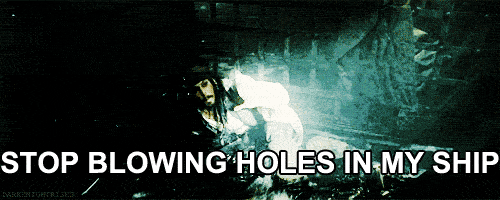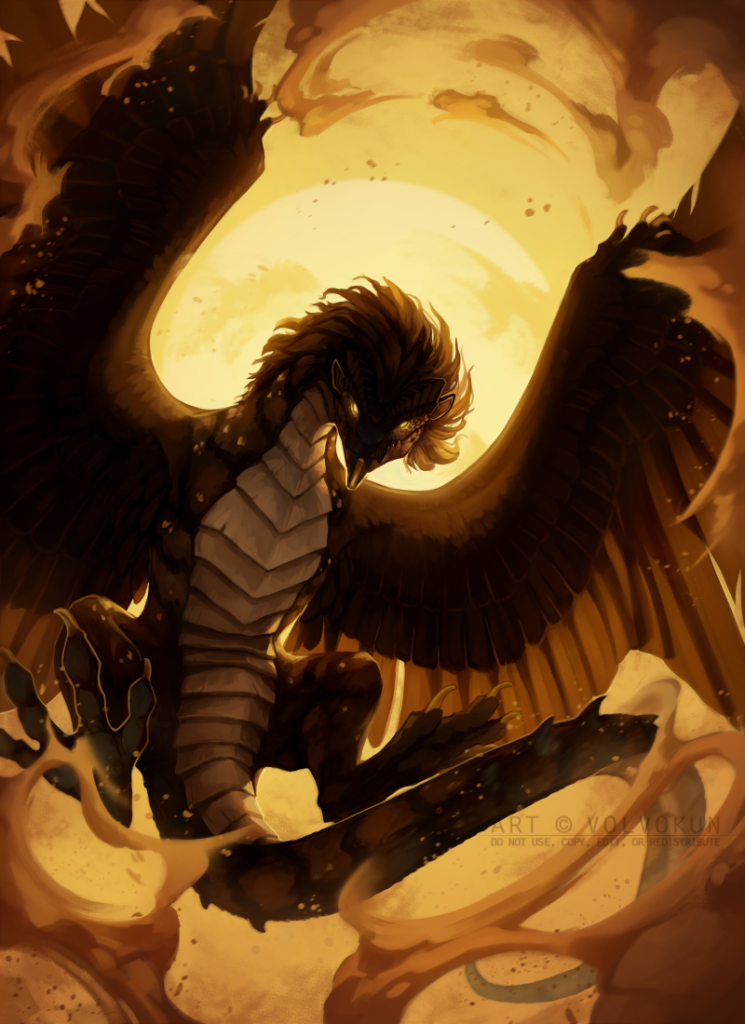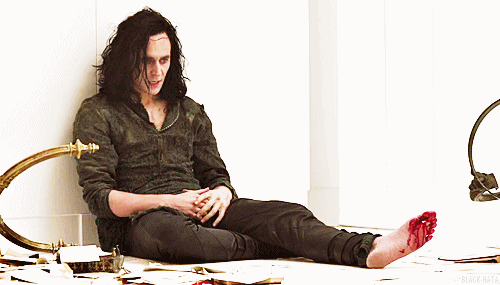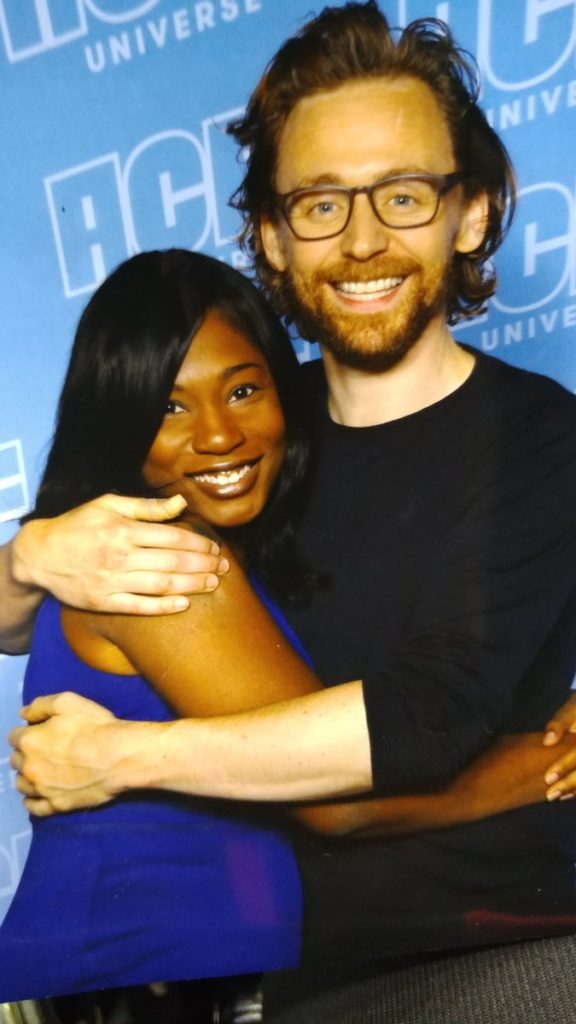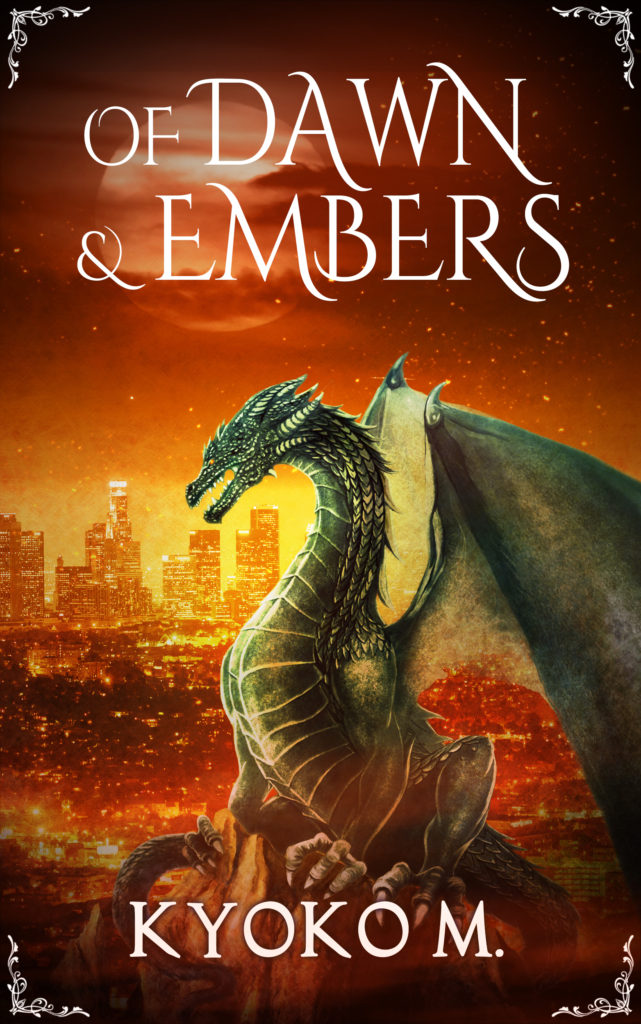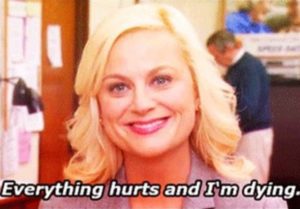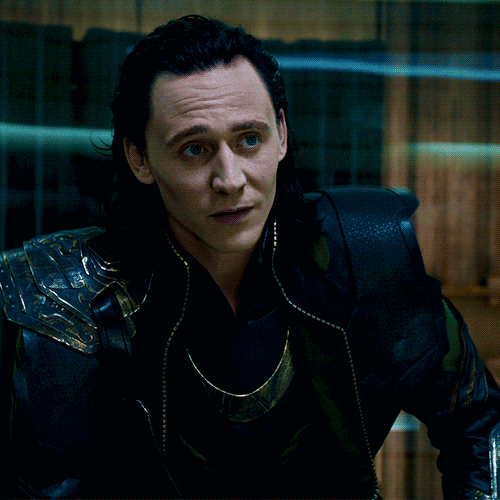Well.
Look at that.
I almost took as long a hiatus as Jim Butcher did completing Peace Talks.
*rimshot*
Get used to that joke, folks, I’m a bitter old crone.
In light of being stuck indoors for a while due to COVID 19, and in light of the recent explosion of news now that Jim Butcher finally completed Peace Talks and it’s being released July 2020 with Book 17 Battle Ground releasing in September 2020, I’ve decided to pick back up on my R & R. We left off a few years ago on Book Seven, Dead Beat. As always, spoilers for both this book and future books abound. You have been warned.
Just as an aside before we start, I have a bone to pick with Jim Butcher, his camp, and the fandom over Dead Beat. Some years ago, someone started saying that any new readers interested in the Dresden Files should start at Dead Beat and skip the first six books.
That’s the dumbest, wrongest, most irresponsible “advice” I’ve ever heard.
If you’ve read my recaps, you’ve seen the utter bombs that have dropped in the series prior to this book. I violently disagree with anyone who has ever told new readers to start at Dead Beat. I will fight Jim Butcher himself over it. Don’t you dare tell someone new to franchise to skip the first six books.
Wanna know why? Let me give you just a taste of the incredibly important things/people that happen either for character reasons or for plot reasons that have consequences or payoff that continues through the rest of the season:
- Harry’s mother, Margaret
- Harry’s father, Malcolm
- Murphy’s father, Colin
- Ebenezar McCoy
- The White Court
- The White Council and the Senior Council
- Thomas’ connection to Harry
- The Denarians
- The Summer and Winter Courts
- The Summer and Winter Mothers
- Lea, Harry’s godmother
- Jared Kincaid
- The Archive
- Susan Rodriguez and the Red Court war
- Mortimer Lindquist
- He Who Walks Behind
- Mac and his bar
- The Knights of the Cross
- The archangels
- Waldo Butters
And that’s just a fraction.
A literal fraction.
So I just want to put my two cents in here and say that while Dead Beat is considered a game changer for the books and one of the first big turning points, do not ever tell someone to start in the middle of the goddamn Dresden Files. It’s reckless and it’s going to make them miss out on so much rich story and so many vital character interactions as well as just some plain great novels. Stop it. Stop it now.
Anyway.
I’m a little funny about Dead Beat, personally. To tell you the truth, I don’t remember it very much because I am shipper trash and this is the book with no Murphy in it. I tend not to pay as much attention to the Murphy-less Dresden Files novels because that’s my favorite dynamic. But to be fair, this is still a good novel and the next one coming up, Proven Guilty, is chockful of awesome Harry/Murphy content, so let me get over myself and dive into the madness once again.
We open Dead Beat with a case of sibling rivalry. In case you’ve forgotten by now, Thomas, Harry’s older brother, has basically been cut off and booted out of the White Court mansion—now headed by his older sister, Lara Raith, who is behind the scenes controlling their father, Lord Raith—and is broke due to spending the last of his fortune to pay off Jared Kincaid for the job Harry hired him for in Blood Rites. Thus, the two Le Fey boys are living together in Harry’s tiny basement apartment and it’s not exactly the easiest thing to deal with. Aside from Susan, Harry’s only ever lived alone with a cat, and later, his dog, Mouse, whom he decided to keep. They’ve been living together close to a year, and Thomas is an incubus sex vampire, so poor Harry is having to deal with beautiful women randomly appearing at his place and wrecking it up on a regular basis since that’s how Thomas feeds himself. You can understand that it makes him exasperated.
Plus, there’s the bonus of these women mistaking Harry for gay.
Which…I’m so sorry, that’s one of the funniest damn things in this whole book.
The problem is that Harry and Thomas don’t actually look alike and they can’t tell people they’re related because it’s very dangerous for their enemies to know that, so the two of them hanging out constantly makes people jump to the wrong conclusion.
This will be important later.
Also, hilarious.
Which brings me to my next excellent bit.
After Thomas returns from the shower once the girl leaves, he reveals that he absolutely ships the hell out of Harry and Murphy.
This is also important.
Harry: [Murphy] said she’d be dropping by.
Thomas: Oh, yeah? No offense, Harry, but I’m doubting it was a booty call.
Harry: Would you stop it with that already?
Thomas: I’m telling you, you should just ask her out and get it over with. She’d say yes.
Harry: It isn’t like that.
Thomas: Yeah, okay.
Harry: It isn’t. We work together. We’re friends. That’s all.
Thomas: Right.
Harry: I am not interested in dating Murphy. And she’s not interested in me.
Thomas: Sure, sure. I hear you. *rolls eyes* Which is why you want the place looking nice. So your business friend won’t mind staying around for a little bit.
Thomas gets it.
Seriously, Harry, you had an entire epiphany in Mavra’s lair that you were jealous of Kincaid taking off Murphy’s pants, and yet you’re going to pretend she’s still just your friend? Thomas smelled that lie almost immediately and I love it.
However, while this is quite amusing, Thomas is having a rough time because incubi can’t exactly hold down regular jobs. Thomas is constantly being jumped by other employees and passerby’s, so he’s frustrated and angry once Harry starts to needle him about his control and bails. It is tough to think about what he’s going through, honestly, and it’s part of why I like Thomas so much as a character. White Court vampires typically don’t do what he does. Thomas only feeds on willing partners and only just enough to stay alive. Other vampires take who they want, when they want, and take until they kill their victims or enslave them to the pleasure. It’s got to be hell to fight those impulses when it’s literally what keeps Thomas alive and sane. But we’ll dive into that more later on.
Harry cleans up and takes Mouse for a walk and Murphy is waiting for him when he gets back.
And then Murphy drops a freaking atom bomb on us.
She’s going to Hawaii.
With freaking Jared Kincaid.
You know. The assassin.
The very not human assassin.
Jim Butcher:
Harry is very understandably angry, confused, worried, and jealous as hell. Murphy came over to leave her location and info to reach her hotel in an emergency as well as the key to her place to “water her plants” while she’s gone.
And here’s where things get interesting.
Murphy is asking Harry a question that unfortunately, poor stupid Harry isn’t aware of yet.
Murphy doesn’t need someone to water her damned plants. Does she need to drop off her location in case Kincaid does something shifty? Probably, yes, but she came over for two real reasons: (1) to have an excuse to ditch the trip if Harry was in the middle of a case that required her help (2) to see if Harry finally realized the romantic and sexual tension between them and would stop her from going by sharing his feelings with her.
This scene is infamous. It really grinds my gears, but in a good way. This is great writing because Harry is tragically a couple steps behind Murphy in this case. I love him to death, but Harry is VERY slow on the uptake emotionally speaking and he’s too far into his own denial and self-doubt to respond to Murphy’s unsaid question. However, the interesting part is that Harry senses something is off but he just CAN’T put his finger on it. He can feel her hesitance, but because he’s overly cautious, Murphy still leaves for the trip.
It’s so goddamn frustrating.
But it’s still good writing.
I really would have loved for Harry and Murphy to have had a conversation about their relationship at this point, but he’s not ready yet and the first time they talk about it in the next book is very interesting, so congrats to Butcher on being patient and pacing it out. It’s a really good internal conflict for Harry during this book because he’s out facing all kinds of dangers but he’s also thinking about how much he wants Murphy not to be with Kincaid because he’s jealous and worried because he cares about her a lot.
Mind you, the entire interaction ends with this bit from Harry’s inner monologue: I watched her go, feeling worried. And jealous. Really, really jealous. Holy crap. Was Thomas right after all?
Harry, you’re a fucking moron.
When Harry checks his mail, he gets a nasty surprise: a threatening letter from Mavra with photos of Murphy killing Renfields during the Black Court vampire raid from the previous year as well as a lock of Murphy’s hair. He’s to meet her that night at his grave in Graceland cemetery or she’ll release the photos, ruining Murphy’s career forever and most definitely landing her in jail.
He meets Mavra and is told to find the Word of Kemmler or she’ll have all the photos sent to the authorities, which means both the regular cops and the White Council. She gives him three days to get it, which coincidentally means his deadline lands on Halloween, his birthday. Ah, just another day in the life of Harry Dresden.
Harry heads home to get the skinny on the Word of Kemmler from Bob the Skull, an air spirit of knowledge he keeps in his basement. We find out Kemmler was a necromancer responsible for World War I and II, for crying out loud, so the guy was major bad news in his day. Bob has been owned by a number of people and things in the past and it so happens he was owned by Kemmler before Justin, Harry’s former master and abuser, owned him as well. Bob has purposely forgotten much of what happened with Kemmler since the guy was a walking nightmare. In order to get more knowledge, Harry taps into Bob’s memories but it goes very sideways as Bob becomes rather demonic when they talk, so Harry switches him back to normal.
The Word of Kemmler is his most awful, evil spells and if anyone gets their hands on it, then havoc and death will be everywhere, especially since some of his followers may still be alive. The magic needed to do a big bad thing would require sacrifices in advance, so Harry heads to see Waldo Butters at the morgue.
And here is one of the aforementioned turning points.
Butters gets one hell of a character upgrade in this book.
And it’s one of the most well-done, surprising aspects of the series.
Our delightful dork Butters is in the morgue practicing polka for Oktoberfest when Harry arrives. This will be important later. Don’t look at me like that, I mean it.
Butters has been studying Harry’s X-rays and recovery progress—if you recall, his left hand is burnt to hell—and lets Harry know his theory, which is that his body literally heals itself until an injury is gone, not just to the best it can do for functionality, which is why he thinks wizards live five or six times longer than the average person, which means there’s a good chance Harry will get the functionality back in his hand. This is a very cool, very heartfelt moment when Butters tells him. I love it. Their friendship is gold.
Butters notices something odd about a body and is about to look into it when a necromancer attacks the lab, using the poor dead security guard as a zombie enforcer. The lead Mook is named Grevane and he’s after Butters. They manage to escape and Butters insists that Harry tell him The Truth, to which Harry reluctantly agrees, since Harry learned his lesson from the last few times he didn’t want to tell someone The Truth and they got killed.
Harry gives Butters the abridged version of The Truth and explains that necromancers have to have a “beat” in order to control zombies, so any sound they can generate that’s repetitive keeps their will over the zombie. If it stops, the zombie just does whatever the hell it wants, so they have to formulate a plan to stop Grevane from getting to Butters as well as find the book. Harry got a look at the book Grevane had with him, so he takes Butters back to the apartment and leaves him with Mouse to investigate.
He stops at a bookstore and grabs a copy of the book that Grevane has and meets one of the bookstore’s employees, Sheila. This will be important later.
On his way out, he’s confronted by two previously unknown entities: Cowl and Kumori. They want the book as well, as Chicago only has two copies. Harry realizes he’s seen them in passing before at Bianca the Red Court Vampire’s place. They actually try to parlay with him to just destroy the book if he doesn’t want to hand it over, but Harry is the stubborn sort and doesn’t play ball. Cowl attacks and Harry just barely manages to survive it and Billy the werewolf and his pack show up to back Harry up. Cowl and Kumori retreat and Harry leaves with the pack as the cops approach.
They take him to Georgia’s parents’ place and Harry overhears Georgia and Billy having a very interesting conversation about him. In particular, about his burnt hand and some of his behavior, how he’s angrier than he has been before, and that when he flipped the car on top of Cowl, Billy smelled sulfur. I really like the tension in the scene as Harry has HUGE blindspots about himself—again, this will be VERY important later—and we as the readers forget that because we’re inside his head, we know his motivations, but others don’t. Georgia is asking Billy to consider stepping back if Harry asks them to because she knows Cowl is big bad business that they’re not ready for and she’s also asking him to consider if something is wrong with Harry since he’s also been very distant lately.
Harry tells them about the demon Lasciel and the coin. It’s a tough conversation considering that Harry has tried every spell he can find to try to separate himself from the demon and nothing has worked. Worse still, he’s doubting himself since he picked up the coin instead of Harry the second when Nicodemus tossed it, so he’s concerned about his subconscious desires as well. What’s really important here is the friendship between them as Harry tells them what’s going on and they agree to do what they can and that he thanks them graciously. It’s really such a grounded scene and it’s why I love Harry so much as a character. I especially love that Georgia points out that Harry is basically the supernatural dad of Chicago; he immediately takes anyone who needs help under his wing and puts their needs before his own, protecting them before protecting himself, which is why she was asking Billy to be willing to hang back. She didn’t want them to distract him considering the level of danger that he’s in, which is a great show of what good friends they are to him. It’s very touching.
Once the heat dies down, Billy and Georgia take Harry back for his car only to find it’s been bashed up with a baseball bat by someone clearly trying to send him a message. Billy and Georgia very kindly offer to get the Beetle towed and lend him their SUV so he can continue investigating since he’s on a deadline. Again, this is a really heartwarming moment, showing how much they care for him and trust him and I like it a lot.
Harry goes to see Mortimer Lindquist, a fake psychic but someone who does happen to have enough supernatural talent to be helpful sometimes. Harry wants Mort to ask the dead if they can help him locate the necromancers. He refuses at first, but then Harry tells him Murphy’s in trouble and Mort knew Murphy’s father, so he agrees to help. The ghosts are able to confirm there are six necromancers currently in Chicago.
Harry returns home and Thomas is home and Butters is asleep. Harry starts to read the book he acquired, but he falls asleep and is visited his father, Malcolm Dresden. It’s probably one of the best scenes in the book, if I’m being honest, as the affection and reverence that Harry has for his late father and vice versa is so palpable. I’ve said a million times that one of the reasons Jim Butcher is my favorite author is that he doesn’t skimp on the powerful emotional scenes with Harry and his loved ones, as well as just other characters in general. A lot of the times male authors want to make their hero really cool and don’t want to focus on things that matter to him on a personal level. Harry is and always has been someone who is deeply impacted by everything around him and he’s not afraid to show his emotions, good or bad. The whole interaction is just simple encouragement from his dad and it’s wonderful.
The next morning Harry and Thomas go for a run and Harry gives him an update on what’s going on as well as telling him about Murphy running off with Kincaid. I want to mention that Thomas is in mid-run when he finds out about Murphy and Kincaid and he full-on stops running for a few seconds.
Thomas @ Jim Butcher:
Thomas is all of us.
It is notable that by now, Harry has realized that Murphy wanted him to tell her not to go. However, he’s trying to rationalize it and say that he’s being reasonable by not going after her due to their friendship and professional relationship. Thomas takes a very good shot at him for it and it’s really good and tense because Thomas is frustrated that Harry doesn’t see that the two of them could have the real deal. Thomas is in love with Justine and he knows how good it can be, but he’s been denied that due to being a vampire. It’s comforting to see that Thomas isn’t pushing Harry to go after Murphy just to be a needling older brother or because he wants him to get laid. Thomas cares because he knows they can go the distance and be happy, which is more than he would ever be able to do being who he is.
This segways into Harry confronting Thomas about his hunger and what he’s dealing with. Thomas comes up with a clever way to make him understand: he challenges Harry to race him down the beach back to the car. Naturally, Thomas is a freaking vampire with vampire speed, so Harry has to use basically every last drop of his strength and agility to “win” the race, and is exhausted and is about to gulp down a whole bottle of cold water when Thomas knocks it out of his hand. And then Thomas quietly tells him that’s what it’s like for him every waking moment of his life. Harry finally understands why he’s been tense and frustrated lately and it’s a great bonding moment for the brothers.
Harry drops Thomas back off at the apartment and heads for the nearest use of dark magic on the map, which is at the Field Museum. The museum currently has the infamous Sue on display at the time, aka Sue the T-Rex skeleton. This will be important later. Turns out there’s been a murder, so Harry sneaks into the crime scene to snoop. He of course forgets that he’s like seven-feet-tall, so one of the S.I. cops who is on the scene, Rawlins, spots him mid-snoop. Rawlins is another character whom I have affection for in terms of being a reasonable authority figure and an ally to both Harry and Murphy. It amuses me greatly that he’s been busted down from detective on account of having a smart mouth and an attitude, since it explains a lot of why Murphy trusts him. His intuition and his knowledge that Harry works with Murphy and she trusts him allows Rawlins to feel comfortable enough to let Harry in on some details of the murder victim, Charles Bartleby. It also helps that Murphy’s father, Colin, saved Rawlin’s life a long time ago so he’s always had Murphy’s back.
On a hunch, Harry asks if Rawlins knows what happened at the morgue and he doesn’t, which means Grevane cleaned up the mess and no one knows Butters is missing nor that the security guard is dead. Harry decides to take Butters along to the morgue to see if what the necromancers want is still in the building. They head inside and take a look at the body Butters had been about to examine and it’s mutilated very badly.
While Harry waits for Butters to help with the autopsy, he overhears the two assistants to Bartlesby come in to ask about the body and his personal items. Harry recognizes that the male, Li, is a ghoul. He hustles to get Butters gone before they get in trouble, but the other corpse that got hit by a car Harry recognizes is a smuggler who works for John Marcone. Cue eyeroll.
In case you forgot—and it’s easy to because this character is so dull—John Marcone is Chicago’s mob boss. He has his fingers in pretty much every pie of organized crime and he’s very aware of the supernatural underbelly as well. He and Harry hate each other’s guts, but both are too dangerous to get the other one killed so they mostly just try to stay out of each other’s way.
They go back to Billy and Georgia’s to try to see what’s on the jump drive, but it’s just an empty file with a number that has sixteen digits. Harry checks his voicemails and he’s got a painfully frustrating check-in call from Murphy and then a call from Sheila, the cute bookstore girl, that something’s up. Harry has Billy take Butters back to the apartment while he continues snooping.
Harry heads to the bookstore and is hurt to learn that its owner, Bock, doesn’t want him around anymore since he’s pretty much got trouble on his heels at all times. Harry agrees and talks to Sheila, even landing himself a date with her later, but shortly after he runs into Li and Alicia, trying to find who bought the Erl King book. Alicia demonstrates some very scary dark mental magic and unfortunately the only way for Harry to break loose is to tap into some of the demonic power in his head. He tries to make a break for it, but gets injured and they take the book. He lucks out that Marcone’s bodyguard, Gard, saves him before Li can finish him off. He gets pulled into a car with Gard, Marcone, and Marcone’s other bodyguard Hendricks. Marcone cooperates, giving him a tip since it’s in his best interest that Chicago isn’t overrun by the undead and in retribution for one of his men being murdered.
Harry gets his injured leg fixed and talks to the tip Marcone gave him, which is an EMT who saw Kumori revive a dead guy the previous night.
After that, Harry heads home and Thomas warns him about Butters being too scared to be any use if they get cornered. It’s a really good conversation as Thomas isn’t saying it to be mean, he’s saying it out of concern for Harry dragging Butters around as literal deadweight. Harry sticks up for him in a unique way, which is telling Thomas that they won’t do him any favors if they tell him to run and keep running, as the fear will control him for good. He and Thomas talk through what he’s learned and Harry recounts what he read in Erlking, so to dig for more info, he decides to call up Lea, his absolutely batshit insane, dangerous, hyperviolent “godmother.” Lord help us all.
But to his surprise, when he tries to summon Lea, Mab, Queen of Air and Darkness as well as the Winter Court, also pants-shittingly terrifying, shows up instead, saying that Lea is imprisoned for challenging her authority. However, Mab is still bound by her loyalty to answer Harry’s questions, so Harry instead asks her about the Erlking. Mab tells him that the Erlking is basically the king of goblins and has control over dead hunters’ spirits, which is linked to why the necromancers want to get his attention, so to speak. Harry tries to dig for more but Mab won’t cough it up unless he becomes the Winter Knight. As right now, Mab has her current Knight, Lloyd Slate, imprisoned and tortured for “disappointing” her. Harry theorizes the necromancers want to raise the ancient spirits all at once and absorb their power, which would make them too powerful for pretty much anyone to stop.
And as Harry gets back to his apartment, he gets jumped by zombies.
Harry Dresden, you are bad for my heart, sir.
The wards that protect Harry’s apartment are meant to stop magical beings from entering, but it has a limit to just how much it can take. Once the bad guys throw enough zombies at it, the wards will fail and then it’s just getting through the steel door to bust inside. Butters understandably gets hysterical because the only plan they’ve got is to try to break for the car and leave.
What follows is one of the most notoriously awesome, heartwarming things in this series.
Harry: We’re not going to die!
Butters: We’re not?
Harry: No. And do you know why?
Butters: *shakes his head*
Harry: Because Thomas is too pretty to die. And because I’m too stubborn to die. And most of all because tomorrow is Oktoberfest, Butters, and polka will never die. Polka will never die! Say it!
Butters: Polka will never die?
Harry: Again!
Butters: P-p-polka will never die.
Harry: Louder!
Butters: Polka will never die!
Harry: We’re going to make it!
Butters: Polka will never die!
Thomas: I can’t believe I’m hearing this.
You’re fucking welcome. Everyone’s life has been enriched by witnessing this scene. Legit, if you shout this at a comic book convention or somewhere that a large number of geeks enter, someone will probably shout it back to you. It’s that famous a scene. For good damn reason.
Harry manages to negotiate with Grevane to get everyone out in exchange for the numbers they found on the flash drive. Corpsetaker crashes the party and Team Dresden manages to bail from the ensuing battle. They all head to Murphy’s place to get stitched up and rest.
Which leads to one of the other funniest goddamn jokes in the whole series.
Poor Butters thinks Harry is gay.
The best part? Thomas thinks it’s fucking hilarious. He then proceeds to enable Butters by being fake-nice to Harry while Butters is stitching him up and I can’t even start to tell you what a belly-laugh it gets out of me that Thomas not only thinks it’s funny, but he just makes it even worse for shits and giggles. It’s EXACTLY what an older brother would do and that’s why I crack up every time I read it. Harry and Thomas are arguably my favorite fictional siblings for this exact reason. Their relationship is so realistic.
Thomas pulls a fast one and gives Harry painkillers instead of antibiotics, which make our giant idiot sleepy and Thomas tucks him in. And Harry proceeds to stab us with more feels when Thomas puts him in Murphy’s bed: The last thing I thought, before I dropped off to sleep, was that the cover smelled faintly of soap and sunlight and strawberries. They smelled like Murphy.
Harry, you dope. You’ve got it so bad for Murphy it’s not even funny.
When Harry sleeps, the demon in his head, Lasciel, finally manifests herself. Since Harry had no choice but to use the Hellfire to get out of a jam earlier, she now has permission to be in his head. She’s not the true demon, but an imprint of her, basically, since the real coin is under Harry’s basement under a lot of powerful magical wards. They have a brief conversation in which Lasciel offers Harry her almost endless knowledge and power and Harry tells her to shove it.
When he wakes, he gives Thomas and Butters the low down on his terrible plan, which is basically to call the White Council and get Wardens dispatched to Chicago to fight and then he’ll try to summon the Erlking at the same time as the necromancers, which means if he pulls it off first, then the necromancers can’t steal the Erlking’s power for their evil plan meanwhile Bob, Thomas, and Butters try to decode the numbers to figure out where the Word of Kemmler is so he can give it to Mavra to save Murphy’s life. The entire thing is basically suicide. Because of course it is.
Billy stops by Harry’s office to make sure he’s alright after hearing what happened at the shop and to warn him that people are very worried about his erratic behavior lately, which Harry brushes off due to all the shit he’s dealing with. This will be VERY important later.
Harry stops by Sheila’s apartment and has her recount the poems in the Erlking’s book so he can summon him because she has a photographic memory. Kumori stops by, but reveals that she just wants to talk, so they enact a ceasefire. She wants him to back off and he wants her to back off, but understandably, neither of them can do so. She does reveal that she and Cowl’s mission is to harness death magic to literally end death in general, making everyone immortal. Yeesh.
Harry heads to Mac’s bar to meet with the Wardens, which consist of Donald Morgan, Carlos Ramirez, Anastasia Luccio, and two newbies. Then Luccio goes and offers Harry his own grey cloak, to Harry’s shock. Then Harry finds out that the war with the Red Court has taken out twenty percent of the Wardens forces so far. It got worse as the Red Court chased them through Nevernever, the land of demons and other creatures, and then called to the Outsiders, which are malevolent beings that live outside of Harry’s resident dimension, reality, and universe. Still, knowing how the Wardens and the White Council operate, Harry wants no part of their ranks. For damn good reason, I might add. Morgan is a dickhead bully who followed Harry around for his entire probation period just waiting for a chance to cut his head off and even tried goading him into attacking him so he’d have an excuse to kill him once. Luccio manages to persuade him that they’ll support him and that she at the very least trusts him and it will shift the tide of opinions in the White Council away from him since he technically started the war (but to be fair, the Red Court just needed an excuse, they were planning it already). She makes him regional commander and reassigns Morgan so he won’t be hovering over Harry’s shoulder looking for a place to stick a knife and they start strategizing what to do.
After the meeting, Harry heads back to Murphy’s place. Thomas called his sister, Lara Raith, and implied that Harry—who knows that she is running the White Court and not her puppet father Lord Raith—might spill the beans unless he receives some sort of assistance. She got them some info about where they think the ceremony will take place. Harry sends Thomas out to drop off a message to the Wardens and preps to go trap the Erlking in a circle so the necromancers can’t summon him.
Harry calls up the Erlking and actually manages to hold him, but Cowl jumps him and the Erlking as well as the Wild Hunt are unleashed on Chicago. He and Kumori leave Harry alive out of respect, and out of the knowledge that the Erlking is just gonna come back later and off Harry. Butters and Mouse are thankfully safe inside the house, and it’s now that Harry realizes that Mouse is scary smart and in no way a regular dog, which is adorable. Unfortunately, though, Kumori stole Bob since Kemmler used to own Bob and Bob would probably know how to give them the instructions they need for the Darkhallow spell. Let the good times roll.
Harry and Butters leave, still trying to figure out the combination, and then we get possibly one of the biggest, nastiest bombs in the whole book dropped on us.
Sheila isn’t real.
She’s Lasciel projecting herself through Harry’s five senses to appear real to him, but she’s not physically there or anywhere but in his head.
Feel free to shit an absolute brick and then throw that brick at this bitch’s head.
I’ve not talked about this bit because I wanted to get to it in sequence with the book. This is one of the most intensely fucked up things that’s happened to Harry so far in the series. I mean, the level of cruelty and manipulation by Lasciel is staggering. She outright lied to his face to get him to comply with her “help” and then tries to pass it off as not that bad to him when he finally puts it together that it’s all in his head and that’s why his friends and Bock the bookstore owner have been worried he’s going nuts. He’s been talking to thin air, for God’s sake. Lasciel insists that she actually enjoyed playing the role since Harry didn’t know it was her, and Harry is a very sweet, charming man all on his own, for no reason other than that’s just how he is, even when he’s in danger. She hasn’t interacted with any people in probably a very long stretch of years, so in a way, she’s not all the way lying about enjoy Harry’s company when he didn’t know it was her the whole time.
But it’s so fucked up.
Lasciel is directly preying on Harry’s weaknesses. She knows he’s soft on women. She knows Murphy left him and he’s hurting and jealous and longing for her this whole time, worried about protecting her from Mavra, and feeling bad that he couldn’t act on his feelings before she left. Deep down, of course Harry wanted a friend and ally during this tough fight, and she’s the only girl around who is smart and pretty and interested in him for who he is, seemingly. What a bitch move. It’s a ‘cut out your heart with a spoon’ moment for me. I am so offended on Harry’s behalf that it’s not even funny. She played him like a fiddle and it’s so depressing and messed up that it’s tough to reread the scenes before Harry finds out Sheila’s not real.
The other piece that’s important as well is that Lasciel is self-serving. If Harry dies, she dies as well. She is still a real entity even if she’s just a copy of the real Lasciel that lives inside the coin in Harry’s basement. She really is trying to help him survive the ordeal so that she can survive as well.
However, Harry recognizes the slippery slope he’s on and asserts his will power until she’s out of his head temporarily and reassures Butters that now he’s aware that he’s been played with so badly. Poor guy. It’s also tough as hell on his friends to have faith in him when he’s literally been hallucinating without knowing it for the past couple of days, but it’s a testament to what good people Harry knows that they keep giving him the benefit of the doubt.
Harry and Butters manage to throw together a tracking spell and find the Word of Kemmler hidden in the skull of Sue the T-Rex at the museum. Grevane confronts Harry and we find out that his buddy that’s been with him the whole time is Cassius, a former Denarian who Harry went to fucking town on in Death Masks, and for good goddamn reason. Grevane leaves with the book and Cassius starts trying to get Harry to tell him where his Denarian coin is. With torture. It is very, very rough and I do not like it and I want to sue Jim Butcher for $300 million in emotional damages.
But luckily, just before Cassius is going to kill him, Butters and Mouse crash the party.
Butters does an admirable job of kicking ass Butters’ style and Mouse makes the final kill, but unfortunately, Cassius gets out his death curse before Mouse kills him. A Death Curse is something a wizard or sorcerer can use right before their final moment. It’s one of the strongest kinds of magic ever, since it’s involved with death, and you can’t avoid it or reverse it usually.
And Cassius’ death curse is “die alone.”
…yeah, I’m suing Jim Butcher for $500 million emotional damages now. Jerk.
Both fortunately and unfortunately, Cassius’ death curse is not immediate. It doesn’t kill Harry on the spot. Harry passes out and sees Id Harry and Lasciel in his subconscious, who have a coming to Jesus talk with the fact that he’s basically heading down an assisted suicide path with his solutions. He finally has no choice but to allow Lasciel to help since there’s not much he by himself and with his few allies can do to survive the night.
It is now, my friends, that we reach the most infamous scene in the entire Dresden Files series.
Harry fucking Dresden riding a zombie dinosaur down Michigan Avenue.
Mm-hmm.
Read that again. Drink it in, people.
My idiot wizard boyfriend has outdone himself.
Since he’s read the Word of Kemmler, he reanimates Sue and has Butters use his polka suit to provide the beat as they haul ass to the site where the necromancers are trying to summon all the spirits.
And it turns out Sue’s pretty handy against an army of zombies. She eats Li. Good girl.
Harry takes Sue and Butters over to the Wardens and gets them caught up and ready for the final assault just as the spell starts to rev up. Corpsetaker attacks Luccio, switching their bodies and minds in the attack and Harry just barely manages to realize it in time. He shoots Luccio’s body and kills Corpsetaker.
And of course, Donald fuckin’ Morgan sees this, thinks Harry’s a traitor, and tries to execute him.
Harry is already too shaken by what he did and is about to let it happen, but Luccio revives in Corpsetaker’s switched body and makes him stand down. I know that Donald Morgan has reasons and motivations and a backstory that we will find out later in the series, but honestly, from the bottom of my black heart, fuck Donald Morgan. I hate him so much. He is everything wrong with the White Council and everything wrong with soldiers in general all rolled into one despicable man. I loathe him even though I’ve read the books and I understand that he is a three-dimensional character. Still. Fuck him.
The Wardens except for Harry and Ramirez are too injured to help, so they press on, leaving Butters to be safe with them, and take Sue out towards the Darkhallow. Ramirez turns out to be an absolute hoot and gets along with Harry, trusting his instincts and the actual good things people have had to say about Harry for once, and it’s a relief.
Ramirez kills Grevane, but Cowl and Kumori get the jump on him and knock him out, capturing Harry. Bob is facilitating the spell and Harry manages to get through to the real Bob, releasing him from the skull. Bob flies into the now loose Sue and comes to Harry’s rescue, and Harry is able to stop Cowl from absorbing the souls and completing the Darkhallow.
Go Team Dresden.
Harry wakes to get a nod of respect (and a warning) from the Erlking. He and the Wardens all get cleaned up and he gives Mavra the book, though not without threatening the shit out of her over Murphy and it makes me shipper heart sing. Nothing says, “I love you” like “if you touch her, I’m declaring war on you.” Oh, Harry. You’re such a romantic.
There’s also a lovely scene of Harry standing over his grave and his father visits again, giving him reassurance that while the death curse will indeed hit someday and while Harry had to do really fucked up things to survive this time around, it’s still his choice to be who he is in spite of the dark things surrounding him.
Things wrap up pretty good. Luccio is on leave to heal, so Morgan takes over for her in the meantime and actually admits that he was wrong about Harry for once (and I still don’t care and hate his guts) and Murphy comes home with her arm in a sling, implying that Hawaii had its own adventure for her (that I will never ever read even if Butcher does write it) and Butter gives Harry a guitar so he can start to rehabilitate his hand, ending the book on a sweet note.
So that was Dead Beat. Woof.
Dead Beat is definitely a rollercoaster ride. It’s one of the books that has very few downtime moments and it has momentum like a freight train. Harry is thoroughly trampled both physically and emotionally and so was I rereading the sheer amount of trauma he went through. For that reason, I have to say Dead Beat is kind of tough on the senses. I do admit that I miss some of the brighter spots and the downtime that Blood Rites or Summer Knight had in them. Overall, while it’s certainly not the darkest book, it is one with some of the darkest consequences and where Harry feels so overwhelmed and hopeless, which is a common theme since Butcher is a sadist. It’s a fantastic book, though, and I get why it gets a lot of buzz in the reading community.
Overall Grade: 4 out of 5 stars
Join me next time for another personal favorite of mine in the series, Proven Guilty.
Kyo out.
